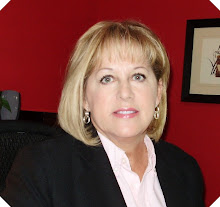Saturday, December 31, 2011
FMLA— HR’s Own Personal Migraine
FMLA—HR’s own personal migraine. (Migraine people, may have terrible headaches, but never so bad that they don’t know exactly how many days and hours of FMLA they have left.)
Successful management of FMLA is very much about careful attention to forms and schedules.
Stacie Caraway is a member of Miller & Martin PLLC in Chattanooga, Tennessee. Her remarks came at BLR’s Advanced Employment Issues Symposium, held recently in Nashville.
FMLA Documentation
Some FMLA conversations can be oral, but most need to be documented. For example, Caraway says, If an employee asks, “Am I eligible for FMLA leave?” you can respond orally; but if the person requests leave, you respond with documentation.
You may request, as appropriate:
•Adoption/Foster Care/ Birth Documentation. There’s no DOL form for this, Caraway says, because this is not a medical request, it’s a request for a report of a legal proceeding.
•Exigency documentation. Qualifying exigency statement and supporting documentation or DOL form WH-384
•Medical Certification. DOL Medical Certification form, regular (WH-380) or military (WH-385)
You will also use the following forms:
•Notice. DOL Notice of Eligibility and Rights & Responsibilities form (WH-381), attach to WH-380.
•GINA Disclosure attachment. (Technically, Caraway says, this is only required when the employee is requesting leave for his or her own medical condition. The statement will generally provide a safe harbor in the event that the medical professional reveals genetic information.)
Who Can Complete Certifications?
Who can complete an FMLA medical Certification form? It’s a long list, says Caraway. First, doctors of medicine or osteopathy authorized to practice medicine or surgery by the state in which the doctor practices and the following state-licensed professionals:
•Podiatrists
•Dentists
•Clinical psychologists
•Clinical social workers
•Optometrists
•Chiropractors (limited to treatment consisting of manual manipulation of the spine to correct a subluxation as demonstrated by X-rays to exists)
•Nurse practitioners
•Nurse-midwives
•Physicians’ Assistants (if functioning within the scope of their licensed practice)
•Christian Science practitioners listed with the First Church of Christ, Scientist in Boston, Massachusetts
•Any other health care provider recognized by the employer or the employer’s group health plan benefits manager
•Also, any of those listed above who practice in other countries, if they are authorized to practice in accordance with the law of that country and are performing within the scope of their practice as defined by such law.
Can You Push Back Against Doctors?
You can push back if forms are incomplete or unclear, Caraway says. Generally, do not accept “unknowns,” she adds. (Duration and frequency “unknown.”) If you accept “unknowns,” and especially if you accept them because you do not want to bother the employee or the doctor, then you’re at fault when things spin out of control.
Remember, says Caraway, the regulations do clearly put the onus on the employee to provide a complete and clear form. If the employee doesn’t do that, you may deny leave.
Also check the form for internal consistency and be sure that an authorized person signed the form.
You can contact the health care provider directly as long as:
•You “clarify” and “authenticate” only; no requests for “additional information”
•No direct supervisor contact
•Give the employee a chance (and 7 calendar days) to “fix” the form (notify the employee in writing and indicate in writing what needs to be done to make the form acceptable)
•Execute a HIPAA release if required by health care provider.
Remember, warns Caraway, this point in the FMLA proceedings is your first and last chance to use second and third opinions for 12 months.
When Provider and Ailment Don’t Match
You can also push back, says Caraway, if the provider and the condition don’t match. For example, if the OB-GYN is certifying migraines or the podiatrist is certifying depression.
Today's HR Daily Advisor Tip: Stacie Caraway is a member of Miller & Martin PLLC in Chattanooga, Tennessee, Summarized & edited for use in this blog.
The Whitford Group, TheWhitfordGroup@aol.com, 704 298-2115
Subscribe to:
Post Comments (Atom)

No comments:
Post a Comment